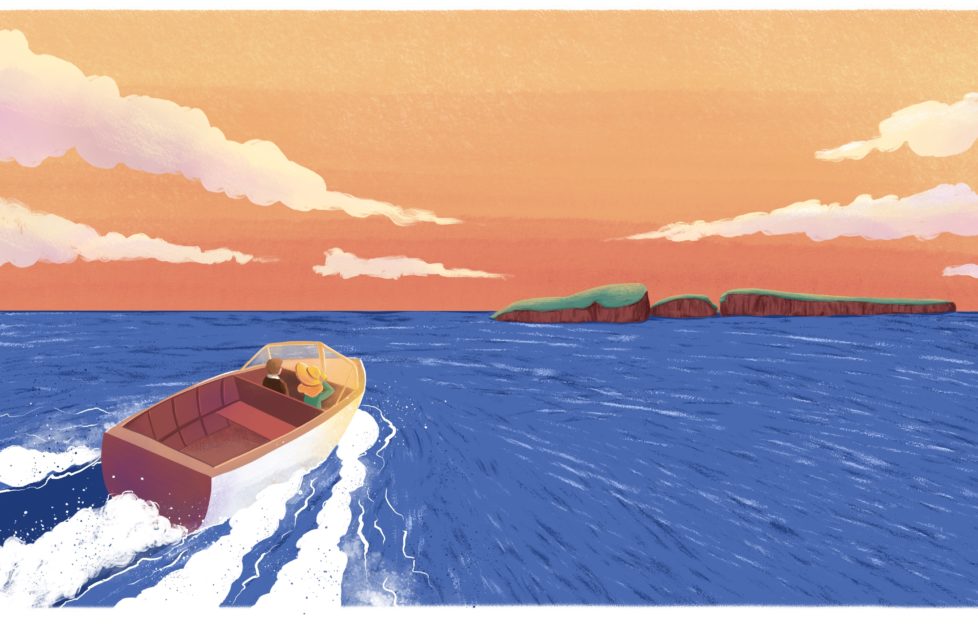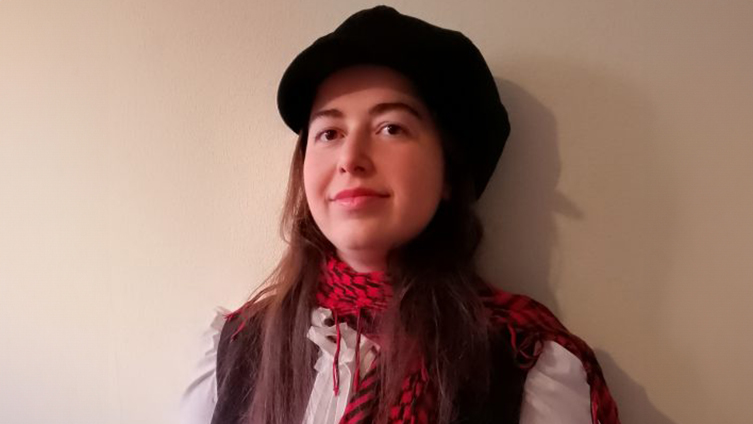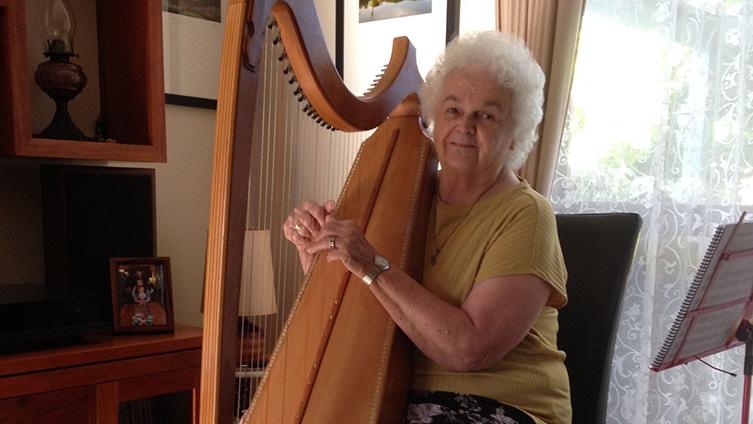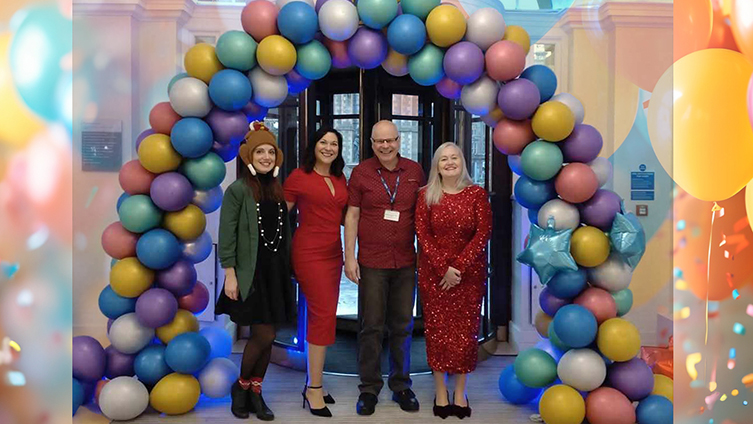
We’re heading back to the 1950s in this week’s story from our Fiction archives, and all the way up to Shetland for “Before The Dawn” . . .
As Margaret Sinclair stood silent and motionless at the kitchen window, a casual onlooker might well have thought she was lost in the beauty of the view.
But the rugged splendour of the scenery failed to hold her attention. She saw nothing of the women working on the peat banks on the opposite side of the water, or the lovely outlines of the cave-ridden Shetland cliffs.
All her thoughts were of the other house and of the little white motor boat Sigurd, swinging gently at anchor alongside the short jetty.
“This time tomorrow,” a soft voice behind her said, ” you will be on your way with Dr and Mrs Jamieson to meet Ian.”
At the sound of her mother’s voice Margaret turned with a start.
“Yes,” she said and added with a slight note of anxiety in her voice. ” But I—I wonder how much he’s changed. His letters have sounded so different lately — as if he were keeping something back.”
Mrs Sinclair patted her daughter’s shoulder comfortingly.
“Well, I don’t suppose a man can study medicine in Glasgow for six years without changing a bit. But even if Ian has changed a little on the surface, I’m sure he’ll still be the same underneath.”
Margaret sighed and secretly hoped her mother was right. Yet the nagging doubt persisted.
Not even to those closest to her would she admit the growing fear that Ian’s meetings in Glasgow with Julie Robertson had something to do with the change.
One of her old school friends, Julie had gone to live with an aunt in Partick and had a good job in a large shipping office in Argyle Street.
“Well, Mother,” she smiled. “The best thing I can do is work like a navvy today so that I won’t have time to think.”
In their guest-house-cum-general-store there was always plenty to do.
Her mother hesitated for a moment.
“I think you could do with some fresh air, dear.
“Mr Lewis was asking me only this morning if I thought you’d go over to the peat banks with him. He’d like you to explain some things to him.”
As Margaret was about to protest, she went on quickly.
“You needn’t worry about leaving me. There isn’t much housework to do. I’ll manage.”
Margaret nodded absently. Perhaps her mother was right. After all, Peter Lewis, the young Edinburgh botanist, was good company, and it might be fun spending the day exploring with him. At least it would be a change from the house.
“You’re right, Mum,” she said at last. “A day in the open will do me good.”
The afternoon and evening passed pleasantly. By the time Margaret arrived home there was so much to do preparing the evening meal that she had little time to think.
But later in her own room everything came rushing back. She re-read Ian’s last letters, letters that had grown sharper and almost curt in tone.
Had he got something on his mind? If so why couldn’t he tell her, as he had done so often in the past?
Margaret smiled wanly as her thoughts flew back across the years. Although it had always been Julie’s bag that Ian carried in their schooldays, it was to herself he had turned in time of trouble.
When he failed an exam, or when he was in trouble with his rather stern father, who had been doctor in this part of the islands for so many years.
She tried to console herself that when they met he would tell her what was worrying him.
If not tomorrow then soon afterwards.
***
But Ian didn’t.
Long before they reached home, Margaret was sure his pale face and tired eyes were not entirely due to overwork. But she was careful to hide her fear beneath a bantering tone.
“Well, Dr Jamieson,” she teased. “How are you enjoying life in Glasgow?”
“Fair enough, Nurse Sinclair,” he quipped back, then seeing her surprised expression he added, ”Oh, yes, I’ve heard from Dad about how you’ve helped him on his rounds. But then you always wanted to be a nurse, didn’t you?”
Margaret laughed, but there was a heaviness in her heart. How she had longed to be grown up so that she could help Dr Jamieson — and Ian, too, when he succeeded his father.
“You know, Margaret,” he said, “you are as different from Julie as chalk from cheese. And that reminds me, she sent her love.”
Margaret gripped the rail tightly and forced herself to smile.
“She writes wonderful letters. It must—it must have been good fun having her in Glasgow while you were there.”
She didn’t look at him as she spoke. But the taut note in his voice when he replied spoke volumes.
“Yes,” he said. “She certainly is a livewire.”
Then he changed the subject and talked about his friends, his father’s patients, and of recent happenings on the islands.
***
In the days which followed, Margaret became still more convinced that something was worrying Ian.
She learned from her mother that Ian hadn’t told his parents what he was going to do. And realising that he hadn’t yet made up his mind, they wisely avoided asking questions.
But one afternoon when they had gone on a fishing trip with Peter Lewis and two other guests, Margaret finally plucked up courage to ask him.
“I’m sure you’ve something on your mind, Ian. Won’t you—won’t you tell me what it is? Remember what you said about a trouble shared is a trouble halved.”
“This isn’t something which can be shared,” he said brusquely. Then, as if regretting his tone, he added apologetically. “I’m sorry, Margaret. But—well, you’re right. There is something I’m tussling with, but I’ve got to work it out for myself.”
“I see,” she said, feeling the gap between them growing.
She looked out to sea, listened to the rollers crashing against the cliffs, to the moaning of the wind.
“You know,” she said, more for something to say than anything else, “there’s a storm brewing.”
By the time the little party got back to the house they were soaked from torrential rain. The wind was screaming in violent gusts across the darkening sky.
After supper, Mr Sinclair drew the curtains and their guests sat round the fire. Like other difficulties, the Shetlanders take the changing weather in their stride.
But as always on such nights, a silent prayer went up “for those in peril on the sea.”
It was about three o’clock in the morning when Margaret heard the banging on the front door. Throwing on her thick coat she ran downstairs.
Dr Jamieson stood on the doorstep and wasted no words.
“There’s been a shipwreck down at the cliffs,” he said gravely. “Ian has taken out the Sigurd to help with rescuing the crew. Some of them have already been taken to the village. Can you come and give me a hand, Margaret?”
Leaving him at the door, Margaret raced upstairs to dress and tell her parents the news. When she returned a few minutes later she was surprised to see the tall figure of Peter Lewis standing at the car.
“I—I heard what had happened,” he said, “and I thought there might be something I could do.”
“Good for you, lad,” commented the doctor, and without any more delay they squeezed into the small car, already filled with food and blankets.
Once at the village, Peter Lewis hurried away in the direction of the cliffs, leaving Margaret and the doctor to attend to those who had already been rescued. And as they worked, they gradually gathered the whole story behind the shipwreck.
The boat, which had come from one of the northern islands, had been blown completely off course by the violence of the storm, and had gone aground near the treacherous Jurra cliffs. Among those who had been on board was Jimmie Muir, a bright-eyed, curly-headed youngster travelling to visit his aunt at Lerwick.
Despite the pain he never winced when the doctor bandaged his injured arm. Perhaps he was too interested in the story which Margaret promised to finish when she had attended to the others.
When Margaret came back some time later she found him comfortably settled in an armchair beside the fire. Taking him on her knee she went on with the tale. In it there were enough jewels, swords and Norsemen to satisfy any child’s heart.
Margaret was so lost in her story she didn’t see his head fall against her shoulder and his eyes close in merciful sleep.
The gentle shutting of the door behind her made her stop and realise that Jimmie was fast asleep. She did not look round for fear of waking him. But somehow she knew that Ian had come to fetch her.
Gently he lifted the sleeping child on to the bed and covered him with blankets.
“He’s a brave kid, a real Shetlander.”
As he turned, Margaret saw the terrible weariness in his eyes. Weariness and yet there was something else, something she could not define.
Part two of “Before The Dawn” will feature in next week’s Fiction Newsletter. Don’t miss it!
Click here to read more of our fantastic Fiction content.
Click here to delve into our dramatic Daily Serial.




